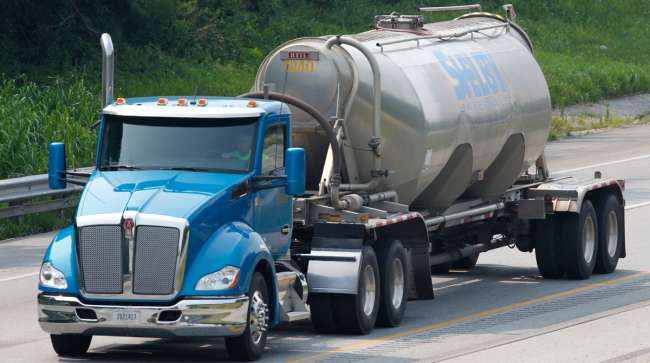Overview of the Proposed Legislation
The introduction of a bipartisan bill on June 18 aimed to provide relief for dry bulk haulers by permitting a 10% axle weight variance. This legislative effort seeks to address penalties imposed due to load shifting during transport, a persistent issue within the industry.
Key Features of the VARIANCE Act
The legislation, named the Vehicle Axle Redistribution Increases Allow New Capacities for Efficiency (VARIANCE) Act, is spearheaded by Senators Pete Ricketts and Adam Schiff. It proposes to increase the allowable weight on tandem axles from 34,000 to 37,400 pounds for trucks transporting dry bulk goods. Importantly, this bill does not alter the current 80,000-pound federal gross vehicle weight limit.
The Issue at Hand
Supporters of the VARIANCE Act argue that it addresses a long-standing challenge within the dry bulk transport sector. During transport, the braking forces can cause cargo to shift, leading to unintended overloads on the front axles—even if the total weight remains within legal limits. Such scenarios contribute to penalties which are considered unfair by many in the trucking community.
Industry Support for the Bill
En American Trucking Associations (ATA) expressed strong support for the initiative. A spokesperson highlighted the importance of implementing practical solutions that prevent unreasonable penalties for weight variances. They advocate that this move will not only facilitate the efficient movement of freight but will also support individuals working in the trucking industry. “This is common-sense policymaking,” remarked Senator Ricketts. “American truckers want to carry the same-sized load in loose dry bulk as they can for any other freight.”
Specific Target Commodities
The VARIANCE Act aims to apply specifically to various dry bulk commodities, including:
- Grano
- Fertilizante
- Aggregates
- Flour
- Plastic pellets
These materials are particularly susceptible to shifting during transport due to their granular nature, which complicates axle weight distribution.
Potential Benefits for the Transport Sector
By introducing more flexibility around weight distribution on tandem-axle trucks, the bill is forecasted to alleviate highway congestion. This allows more carriers to operate at the full gross vehicle weight while minimizing the risks of penalties. Notably, stakeholders from agriculture and retail sectors also support this bill, framing it as necessary for maintaining competitiveness among U.S. exporters reliant on efficient domestic trucking solutions.
Advocacy from Industry Leaders
Ryan Streblow, president of the National Tank Truck Carriers, emphasized the measure’s potential to enhance transport efficiency while reducing highway congestion. The proposed change is also seen as fundamentally beneficial in enhancing safety across the roads without incurring additional infrastructure wear. “We can increase payload efficiency, reduce highway congestion, and boost safety—all without additional infrastructure wear,” noted Streblow.
Regulatory Background
The current federal axle weight limits were originally established with the intention of safeguarding highway infrastructure and ensuring safe braking capabilities. However, many industry associations argue that these outdated standards do not adequately account for how dry bulk materials behave during transport. State enforcement often imposes penalties on carriers not adhering to axle weight regulations, even when the total weight is compliant with federal limits.
The Future of Transport Regulations
The introduction of the VARIANCE Act presents a path forward. Its narrowly targeted approach aims to reduce weight limit violations without instigating larger debates on the established 80,000-pound cap, which has been politically sensitive since the early 1980s.
Broader Legislative Context
This legislative effort comes at a crucial time as lawmakers contemplate comprehensive transportation policy reforms. Industry groups are advocating for the inclusion of this bill in the upcoming surface transportation reauthorization package, hoping it could usher in broader reforms that benefit the logistics landscape.
Conclusión
Calls for changes in dry bulk trucking regulations, such as those posed by the VARIANCE Act, not only highlight the challenges faced by the industry but also underscore the interconnections between legislative actions and eficiencia logística. Although such proposals may seem insignificant on a larger scale, they hold substantial implications for operations on the ground, as they aim to maintain competitiveness and ensure safety in the transportation of vital goods. On GetTransport.com, individuals can leverage optimal transport solutions that are not only efficient but also affordable. The platform supports diverse transportation needs, from home and office moves to heavy cargo deliveries, ensuring a reliable service tailored to every requirement. Now’s the time to ensure your logistics are as streamlined as possible. Reserve su viaje ¡hoy!

 Propuesta para aliviar las sanciones por peso de los camiones de carga seca a granel">
Propuesta para aliviar las sanciones por peso de los camiones de carga seca a granel">